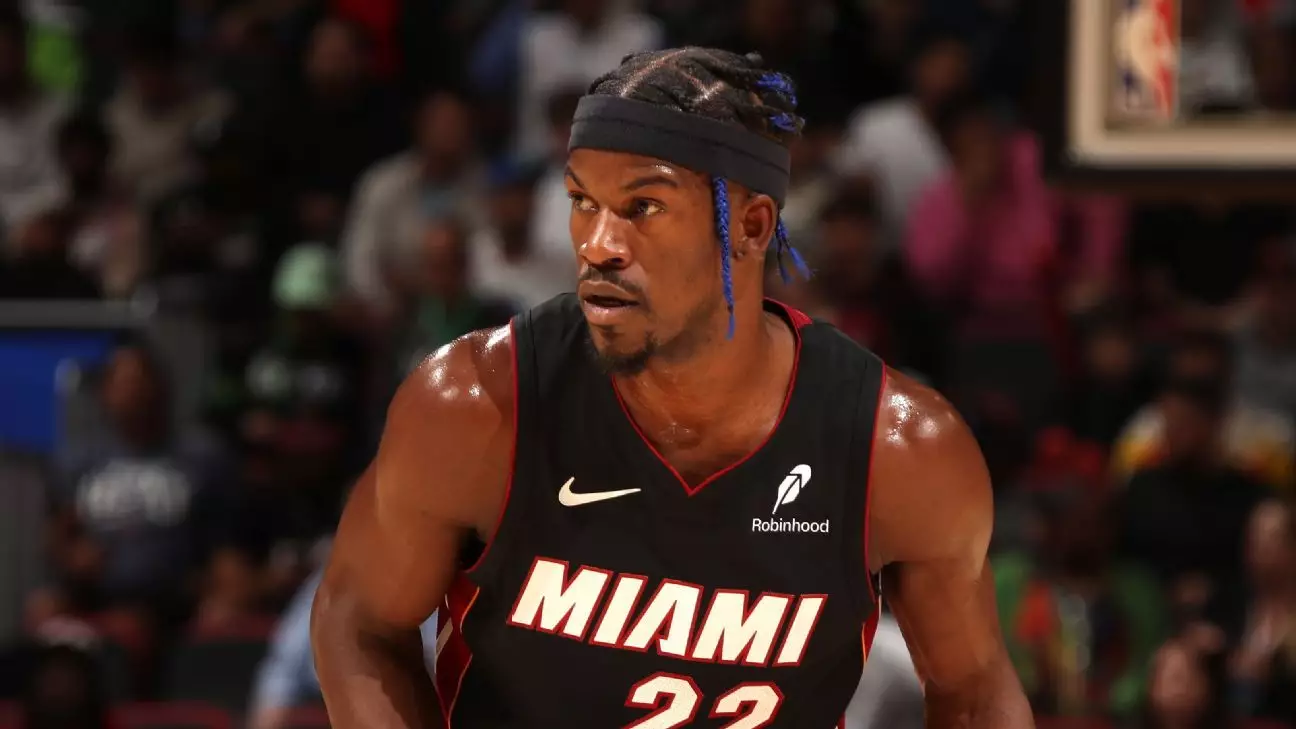The recent suspension of Jimmy Butler from the Miami Heat has raised eyebrows across the NBA, illuminating deeper issues within the team dynamic. Butler, a star guard known for his tenacity and competitive spirit, was handed a seven-game suspension for “multiple instances of conduct detrimental to the team.” This situation signals not just personal struggles for Butler but also underlying fractures in the relationship between him and the organization’s leadership. After a dismal performance against the Indiana Pacers, where he scored just nine points, Butler expressed a troubling sentiment: he had lost his joy for the game while playing in Miami.
The Heat’s official statement regarding Butler indicates that his absence from the team is not simply a disciplinary measure, but rather a reflection of his desire to seek a fresh start elsewhere. According to sources, Butler and his representatives have signaled their interest in a trade, prompting the front office to entertain offers. His candid remarks following the Pacers game further highlight his discontent—“I want to see me getting my joy back playing basketball,” he stated, emphasizing a crucial aspect of an athlete’s psyche: happiness. For Butler, this joy appears unattainable in his current environment, leading to speculation about where he might thrive next.
The friction between Butler and the team reportedly intensified when team officials suggested he hadn’t played up to his potential during a previous game against the New Orleans Pelicans. After a prolonged absence due to illness, Butler’s limited involvement in the Heat’s recent victories—reflected in his minimal shots and scoring—was a sore point. Head Coach Erik Spoelstra’s decision to bench Butler during the critical moments of these games only compounds the situation, likely leading Butler to feel isolated and misunderstood. The decision to suspend him further highlights an ongoing power struggle between a star player and the team’s management.
The economic implications of Butler’s suspension cannot be understated. Missing seven games will cost him over $2.3 million, a staggering figure that underscores the real-world impacts of conflicts on and off the court. While the National Basketball Players Association plans to challenge the suspension, such disputes can often be prolonged, leaving Butler without any immediate recourse. As the last guaranteed year of his contract approaches its end, and with a lucrative player option looming, his future in the league hangs precariously in the balance.
In light of these developments, the Heat must navigate this turbulent waters carefully. With Butler openly expressing his reluctance to continue with the team, it may be in both parties’ interests to pursue a resolution that allows Butler to regain his competitive edge elsewhere. If the Miami Heat hope to maintain their status as a formidable contender in the NBA, they will need to address not only the performance issues on the court but also the relationships that hold the team together. As Butler seeks to restore his joy in basketball, the franchise must reflect on how to avoid similar situations in the future, ensuring that all players feel valued and motivated.

